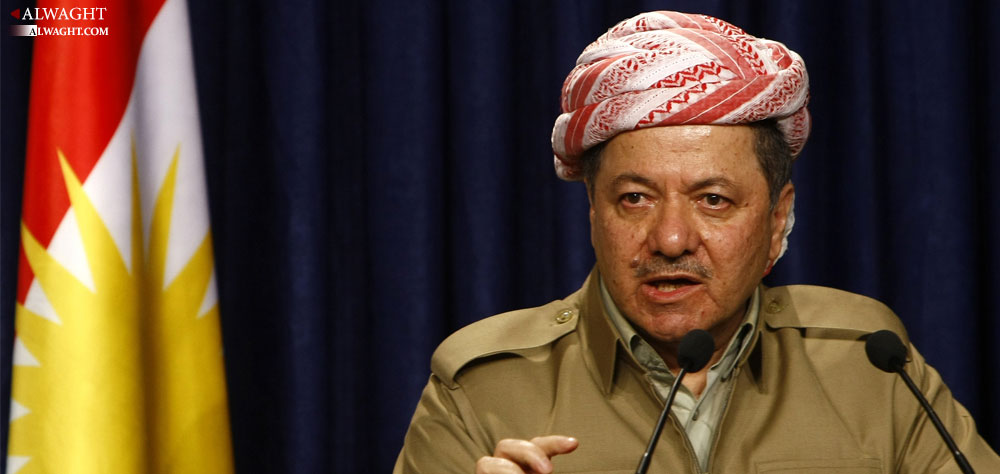Alwaght- The developments of Iraq's Kurdistan region in the past two years have been affected by rise of ISIS terrorist group and its advances in Iraq. Meanwhile, in addition to grappling with an array of major problems including economic troubles, entry of refugees from other terror-hit parts of Iraq, fighting ISIS, and a shortage in military supplies, the autonomous region has witnessed divisions between its key political parties.
In the summer of last year, the legal term of Masoud Barzani as the president of the region ended. But the leaders of the Kurdistan Democratic Party, Barzani’s party, insisted that he should still remain in power even beyond his legal term with a consideration of the critical political, security, and economic conditions. On the other side, Gorran (Change) party, an opposition group, reacted to the stay of Barzani more than any other party. This reaction sent the two key parties of Kurdistan into tense relations.
At the same time, the popular protests in the region’s major cities like Sulaymaniya and attacks on the headquarters and offices of the Kurdistan Democratic Party deepened the gaps between the ruling party and Gorran party. The ruling party’s officials recognized Nawshirwan Mustafa, Gorran's leader, as an agitator to attacks targeting offices of the Kurdistan Democratic Party across the region. This pushed the Barzani-led government to dismiss Gorran-linked ministers. Moreover, the government denied the region’s parliament speaker, who was also from Gorran, entry to the legislation body, resulting in a 14-month closure of the parliament.
But in the past few days, Masoud Barzani, who still faces oppositions for his continuation of work as president of Kurdistan, in a message to different political parties called for negotiations in a bid to settle the dispute over the president post and also work out an agreement to allow the parliament resume job.
At the same time, some officials from the Kurdistan Democratic Party, including the Prime Minister Nechervan Barzani, have raised the issue of independence of the region.
Last year, the president amid a heightened conflict between the Patriotic Union of Kurdistan, Gorran, and Kurdistan Democrat Party over the presidential post put forward arranging an independence referendum to decide if the region wants to separate as an independent state from Iraq. The analysts described Barzani’s measure as a smart move to forge unity among Erbil's officials and also press Baghdad for budget through resorting to threats to seek independence.
The same policy is being applied now by the ruling party but with two major distinctions in comparison to last year’s raising of the case. First, this time, instead of Barzani, the region’s second figure, namely the PM, has triggered the independence case. Second, just unlike last year, today there is no talk of referendum and reference to the people’s ideas about independence from the central government in Baghdad.
It appears that due to tough economic and political conditions, the leaders of the Kurdish regional government backed down on their initial desire for holding referendum without taking into account the role of the central government and now are eyeing dialogue with Baghdad.
A foreign debt of $17 billion, distrust by the foreign investors due to deep-rooted corruption and mismanagement, as well as lack of assurance for supporting the independence bid by the Persian Gulf Arab states, the US, and Turkey can be counted as the leading challenges of Erbil in the current conditions.
Additionally, Michael Knights, a researcher at the Washington Institute, believes that the main drive behind change of the Kurds' way of seeking independence is an exhaustion of the Kurdish Peshmerga forces and also the Iraqi army which are busy fighting the terrorism. Knights notes that none of them now favors confrontation, instead they want securing a relative stability as soon as possible.
Accordingly, raising the issue of independence amid a stockpile of domestic and foreign troubles of Kurdistan region is simply a measure by the ruling Kurdistan Democratic Party to appease voices protesting economic and political conditions, those that can tarnish image of the party while only a couple of months are left to make a final decision on the future of the presidential post. Actually, putting forward the Kurdish region’s negotiations and dealing with Baghdad for independence will increase sensitivity of the case among the Erbil officials and can act as a factor driving out the disputes.



























